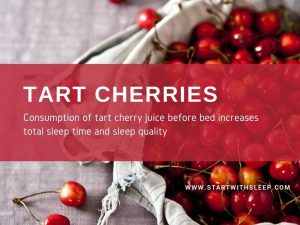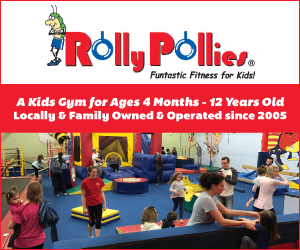How well do you really sleep? Each morning – do you feel rested and ready to take on the day? There are an awful lot of misconceptions when it comes to sleep – so we’ve teamed up with Soda Kuczkowski. Soda is a sleep health educator and the owner of START WITH SLEEP, a resource center focused on improving sleep for your entire family.
So .. what’s the truth about sleep? What works, what doesn’t and why does it all matter? Here are some of the most common misconceptions about sleep – which are addressed by Soda.
Sleep needs are the same for everyone.
While there are guidelines outlined by the National Sleep Foundation, sleep needs are different for everyone. There is a minimum that everyone should aim for to stay healthy but needs are based on each individual; some need more, some need less. There is a science known as chronobiology that actually outlines how each of us has a different chronotype or sleep pattern. That’s why some rise early and some go to bed late, but in the case of children they don’t develop it completely until they are adults. That means that from the time we enter this world and throughout our lives our patterns of sleep are constantly changing! No wonder it is hard to stay caught up. Understanding your and your child’s sleep needs will go a long way in helping both of you create and maintain healthy habits throughout your lives.

Melatonin is a natural sleep aid.
This is long time misunderstood sleep aid. Melatonin helps regulate our sleep-wake cycle, it does not help us fall asleep. Melatonin does not increase your sleep drive or need for sleep. While it is widely marketed as a safe, natural sleep aid, it is not appropriate for everyone. Taking it is actually considered hormone therapy. Furthermore, the clinical studies conducted are clear on the dosage that should be taken, over-the-counter forms of melatonin are sold up to 3x what research dictates is a safe amount. It is also not a long-term sleep solution. It is meant to be taken short term and does not eliminate the underlying issues with sleep. We are now seeing it readily being sold and given to young children when there are no long-term studies to understand how it effects development. In other countries you need a prescription to even take it! Also, in adult use large doses of melatonin can interfere with some medications including birth control, high blood pressure and seizure medications.
It is best used for short term use and for circadian rhythm disorders such as jet lag and shift-work and only for very specific groups of individuals under the care of a sleep physician. There are ways to help your body naturally produce it including drinking tart cherry juice before bed which can help you stay asleep up to 84 minutes longer! The best way to regulate your melatonin levels? Regulation of natural light and restriction of artificial light at the right times throughout the day.

It doesn’t matter when we sleep.
60% of the human growth hormone is secreted during sleep. For children it is important in their development. For adults, it is responsible for accelerating skin’s repair and cell regeneration, meaning that good sleep is the closest thing we have to the fountain of youth. This happens between the hours of 11 p.m. and 4 a.m. So getting good, consistent sleep every night plays a huge role in not only how our health is maintained but how we look and feel. It is the single most significant thing we can do to restore our mind and body health every day!
Sleep pills are the cure for all sleep issues.
While there are some neurological medical sleep disorders that require medication, if you are taking any type of sleep medication the best way to manage it is to work with a sleep specialist. Often times medications are prescribed for sleep issues off-label, meaning that they are not listed as a prescription for the management of what it is being given for. This can not only be dangerous if a medical sleep issue is left undiagnosed, but can lead to dependence. Always mention issues with sleep to your doctor and or/seek out a sleep specialist to be screened for the likelihood that medical sleep testing is necessary before continuing with any sleep aid for more than 3 months or work with a sleep health educator/consultant to improve sleep hygiene – behaviors that can affect the quality of sleep. Lifestyle changes are still the most effective in helping eliminate issues with sleep challenges, specifically insomnia. If you do decide to take over the counter sleep aids make sure to speak with your pharmacist to discuss any interactions with current medications and/or diet.
You do not have a sleep problem if you can fall asleep anytime and anywhere.
Are you the type of person who is asleep faster than you can turn off the light? You think you sleep deeply at night but during the waking hours you find you can take naps anytime and anywhere? It may surprise you, but that isn’t good sleep and it is a clear warning sign. When it doesn’t take us at least 10-20 minutes to fall asleep, our body is telling us we are overly exhausted and this could be a sign of a sleep deprivation. Sleep deprivation is a term that has recently seen more use as the Center for Disease Control declared it a public health epidemic in 2015. Sleep deprivation occurs when an individual fails to get enough sleep and it can lead to a long list of health problems. We are seeing issues with this in both children and adults but it affects each differently. Children get hyper when they are over-tired where as adults have problems with low energy and daytime fatigue. Allowing your body to rest and knowing how to read your sleep cues regardless of age will go a long way in helping you maintain healthy sleep habits.
You can catch up on sleep during the weekends.
While it may feel great to sleep the mornings away during the weekend to catch up from the week, your body never does. The sleep debt we collect nightly can not be eliminated with a few extra hours on the weekend. The best way to maintain your health is to keep a consistent sleep-wake cycle each and every day. Plus do ever notice how tired you are on Monday from all the extra sleep and lounging around? No worries I am not staying you can’t sleep in, just make sure it isn’t too much past your normal wake time.
Co-sleeping and bed-sharing are the same thing.
Co-sleeping is when an infant sleeps in the same room as the parent but shares a different sleep surface such as a crib, bassinet or cradle. It is the
updated recommendation of the American Academy of Pediatrics that babies remain in their parents room until 1 year or at a minimum 6 months to help as a preventative measure for Sudden Infant Death Syndrome. Bedsharing is form of co-sleeping which poses the highest risk as a number of factors can obstruct a babies breathing including blankets, pillows or a parent unintentionally blocking the airway by rolling over.
Breastfeeding vs. Sleep
It is long debated that to be successful at breastfeeding you have to sacrifice sleep. While it is true that the first few months are the hardest battle new parents face it can be minimized if you understand what the science outlines about newborn sleep patterns and you understand how to improve the quality of the sleep that you do get. Sleep plays an important role in managing mental health, specifically postpartum depression.

If you are not sleep deprived, you are not doing enough as a parent.
False! Taking care of yourself is an important part of caring for your little one. Sleep plays a major factor in your emotional, mental and physical health. Incorporating self-care isn’t selfish, it is necessary. Taking time to relax is an important part of a balanced lifestyle for the entire family.
Join START WITH SLEEP every last Saturday of the month for a
FREE hour of Restorative Yoga for the adults and every 3rd Saturday for the kids, ages 3-7 years old.
Looking to overcome a sleep challenge or manage your health better? Join START WITH SLEEP for one of their many programs including:
Or book them to come to your place of work or school:
Soda Kuczkowski is the owner of START WITH SLEEP an integrative education resource center and retail boutique that focuses on both behavioral and medical sleep challenges located in Buffalo, NY. She is also the founder of the SE+T™ Sleep Program, a guide for improving sleep quality naturally. She is committed to addressing sleep concerns and questions by providing sleep health education through a channel of various educational components including sleep consulting, coaching, workshops and health programs.









0 Comments